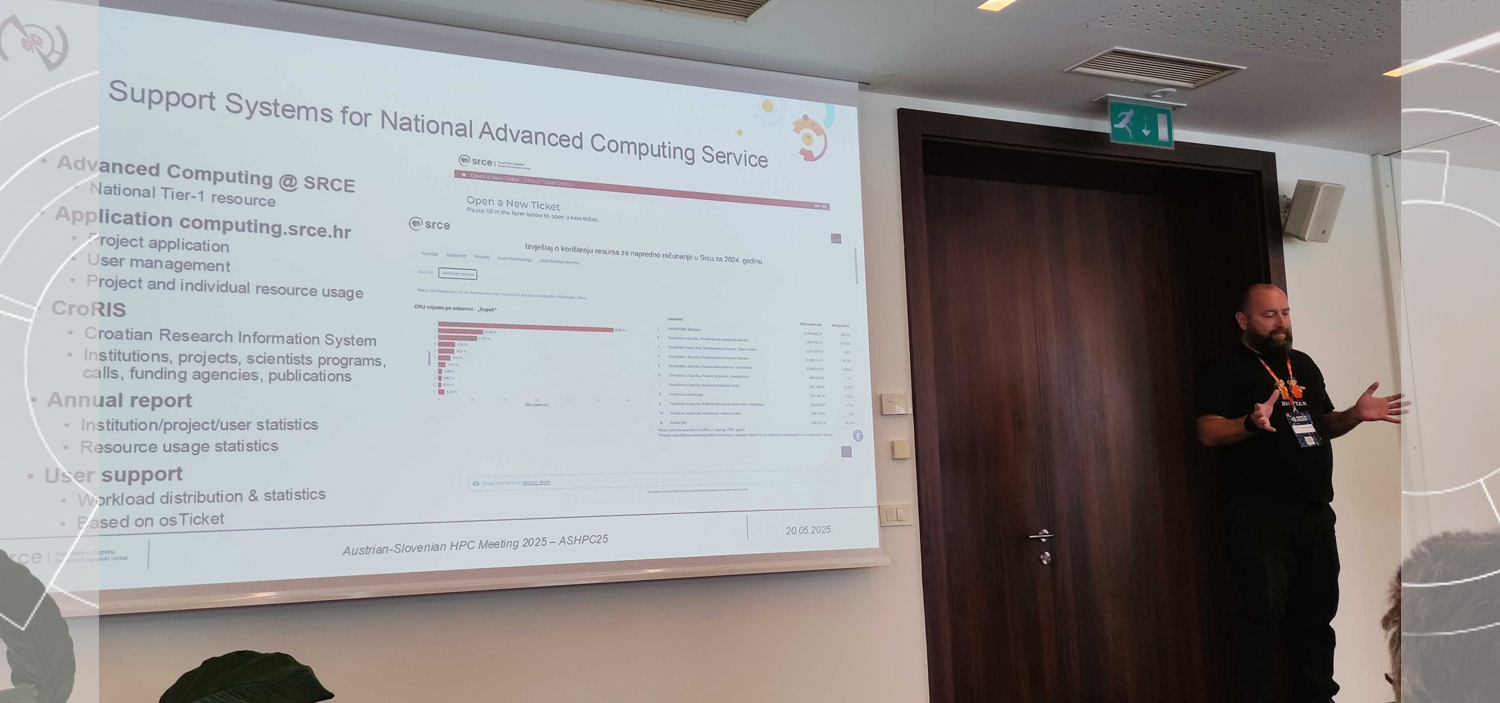This year’s participation again highlighted SRCE’s dual role—active engagement in project coordination meetings within EuroCC 2, and showcasing key components of its Advanced Computing service, particularly the support systems without which the service could not function. These include systems for user registration and management, user support, and transparent usage reporting.
The first day of ASHPC25 featured a working meeting of national HPC competence centres from Central Europe. The discussions focused on sharing experiences in the areas of education, outreach, advanced consulting services, and access facilitation to EuroHPC systems. Additional topics included the evolving relationship between national competence centres and newly established AI Factories, as well as future opportunities under the upcoming EuroCC 3 initiative.
The main programme of the conference included 4 invited talks, 44 short presentations, and 21 posters. SRCE contributed with a poster and a lightning talk, showcasing how the Advanced Computing service provides a comprehensive package to support the entire Croatian research and academic community.
A central component is the web application computing.srce.hr, which enables project and user registration, and provides personalized reports on resource usage. The application was developed using Django/Python and ReactJS. Users log in via their institutional credentials through AAI@EduHr, or internationally via EduGAIN. The application is also integrated with CroRIS, the Croatian Research Information System, enabling automatic import of project and publication data.
A transparent and accurate reporting system is essential when working with large-scale resources such as supercomputers. It ensures that all stakeholders—funding bodies, institutions, individual projects, and the resource provider—have a clear understanding of usage patterns and the value of the provided resources.
Finally, SRCE presented its user support system, which is based on the open-source platform osTicket. This system allows for efficient tracking of user requests, workload distribution among service team members, and detailed reporting on support performance.


